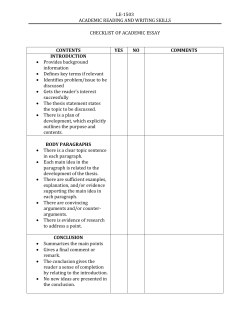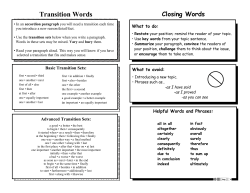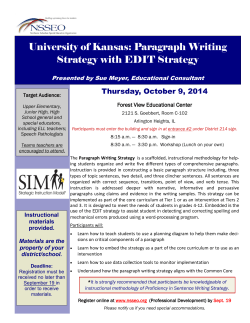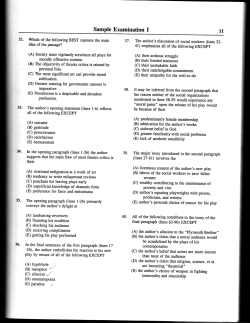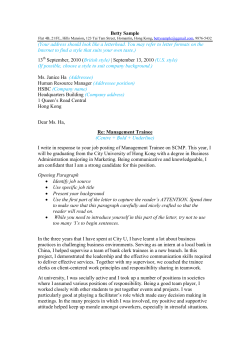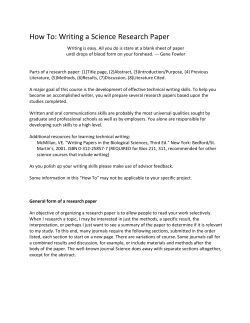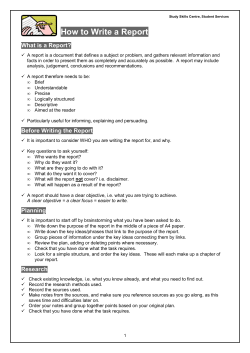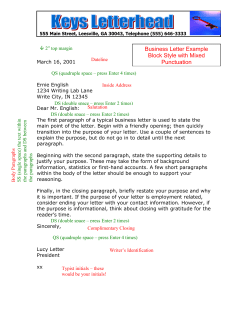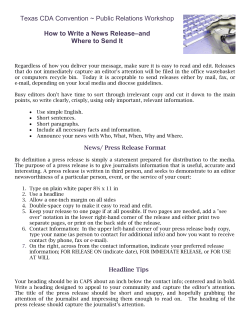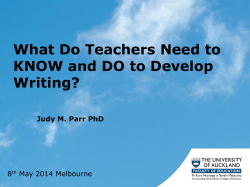
Key features and writing framework PDF - EAL Nexus
This project and its actions were made possible due to co-financing by the European Fund for the Integration of Third-Country Nationals Nexus resource Recount writing Key features and writing framework Subject: English Age groups: 8–11, 12–14, 15–16, 17–18 Topic: Non-fiction genres Licence information | This resource is free to use for educational purposes. ©British Council 2014 Source | This resource was originally developed by Charlotte Hurley and has been adapted by EAL Nexus. Recount There is a clear opening paragraph to set the scene (who, what, when, why, where?)to orientate the reader A new paragraph is started when there is a change in place, time, mood or topic The first person is used for a first-person recount, e.g. diary entry: ‘I’, ‘we’ The third person is used for a third-person recount, e.g. biography or newspaper report: ‘he’, ‘she’, ‘they’ Past tense is used Present tense may be used when writing a diary entry or letter and the events are happening as they write, e.g. I’m hiding as I write this. Feelings, reactions, thoughts and opinions are included The events are told in sequential order – the order in which they happened Adverbial phrases are used to order the events, indicating when an event happened, e.g. later, after lunch, when the sun went down, as they slept … Adjectives are used to add detail and clarity Carefully chosen verbs and adverbs are used to add detail and clarity Direct speech is used including inverted commas Reported speech may be used. ©British Council 2014 Recount writing framework Purpose: To retell an event or series of events (from the point of view of someone who was there) Beginning - an opening paragraph that orientates the reader and sets the scene (who, what, where, when?) Middle – a series of paragraphs in sequential/ time order that tell the reader what happened. Written in the past tense and covering a specific period of time A new paragraph is started when there is a change in place, time, mood or topic There may be personal commentary at any stage of the recount Ending – a paragraph that brings the writing to a satisfactory conclusion ©British Council 2014
© Copyright 2025


